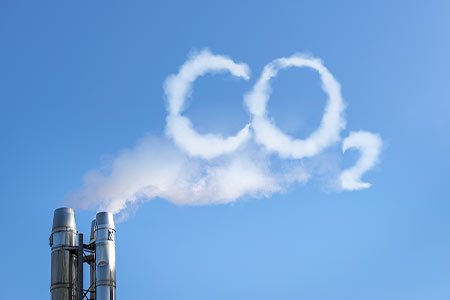Arca, a leader in carbon mineralisation, has announced that it is working with producers of nickel, a critical metal for the clean energy transition, to advance carbon dioxide removal at mine sites on three continents. Arca works globally with nickel mine developers and operators to capture and permanently store CO2 in mine tailings using Arca’s technology.
Arca is developing and commercialising a portfolio of technologies that help mining companies measure, maximise and monetise the carbon sequestration potential of their mining byproducts. Arca’s patent-pending mineral activation technology uses high-intensity bursts of energy to transform and disrupt the mineral lattice structure of magnesium rich minerals, increasing both the rate and capacity for CO2 capture and permanent storage. With material from its mining company partners, Arca has achieved never-before-seen rates of air capture and capacity for CO2 storage, operating at atmospheric air temperature and pressure.
Arca is backed by Lowercarbon Capital and the Grantham Foundation, the leading climate investors in the rapidly emerging carbon dioxide removals industry. Ryan Orbuch, Partner at Lowercarbon Capital, said: “With Arca, mining companies can turn tailings liabilities into assets by unlocking gigaton-scale carbon removal.”
Arca can work with legacy (closed) mines, junior (under development) mining companies, as well as existing mine operations of any size, and is currently working with mining companies in key mining jurisdictions such as Canada, Australia, the USA and Southeast Asia.
Arca is announcing that it is working with the global mining major Vale, and the Australia-based juniors Poseidon Nickel and NickelSearch, and Blackstone Minerals. Arca is also working with Talon Metals which, in a joint venture with Rio Tinto, is developing the USA’s only high-grade nickel resource for the domestic battery supply chain.
Todd M. Malan, Head of Climate Strategy, Talon Metals, commented: “Talon and Arca are working on transformational change in mining and mineral processing. Our partnership is focused on showing how ‘waste’ from conventional nickel processing can be harnessed to store carbon that has been removed from the atmosphere or captured in industrial processes. This ‘waste-as-carbon-sink’ approach has further potential for reuse in building materials, thus significantly reducing the amount of waste that needs to be stored as compared to present day legacy nickel processing.”
Professor Greg Dipple, co-founder and Head of Science at Arca, said: “Arca is helping mining companies understand the potential for mineralisation of their resources, design how that potential should be realised, and then advance to actual project development. Our mineral activation technology significantly accelerates the natural process of carbon mineralisation using mine tailings from ultramafic rocks. This helps these companies transform their tailings into industrial-scale direct air capture and storage facilities, transforming mine waste into a valuable new resource and climate solution.”
Arca helps the mining industry grapple with the paradox of the clean energy transition. According to the International Energy Agency, by 2040 the mining industry will need to produce 10 – 20 times more critical metals like nickel, for batteries and other green energy infrastructure. Yet mining itself can be very carbon intensive. Arca helps to resolve that paradox by helping minerals producers transform their mine waste into massive carbon sinks.
Arca has been recognised with a US$1 million XPRIZE Milestone Award for Carbon Removal, a Foresight50 Award as one of Canada’s most investable cleantech ventures, and an SDTC Seed Fund grant. Arca produces and sells carbon dioxide removal services to climate leaders with contracts previously announced with Shopify and Frontier which was founded by Stripe, Alphabet, Shopify, Meta, McKinsey and others. The company is also supported by Canada’s National Research Council.
Dr Dipple will be speaking in Perth Australia about Arca’s technology at the Energy & Mines Summit on June 14, and at the CSIRO symposium on locking carbon in minerals on June 20.
Read the article online at:
This article was published by:
Visit the original article here



